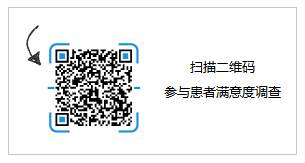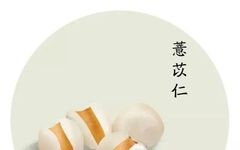
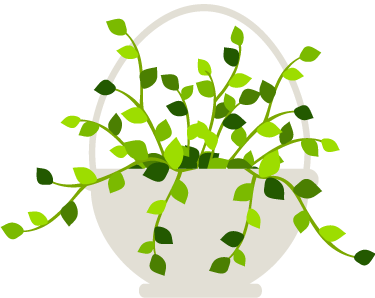
Coix Seed (Yi Yi Ren), with a sweet flavor and slightly cold nature, is primarily used to treat muscle spasms and rigidity, preventing bending and straightening due to wind. It is effective for dampness obstructing the body, promoting the downward movement of Qi and alleviating counterflow. Long-term use can lighten the body and increase vitality; the root of Coix Seed can expel the three parasites. According to the Shen Nong Ben Cao Jing: sweet, slightly cold. It treats muscle spasms, rigidity that cannot bend or stretch, wind-damp obstruction, and promotes Qi downward. Long-term use lightens the body and benefits Qi. Its root expels the three parasites.

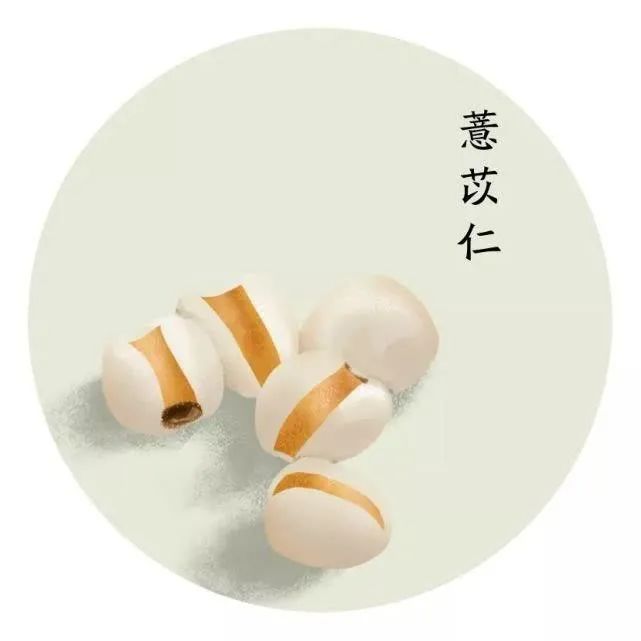
Pharmacological Properties
Coix Seed has diuretic and dampness-draining properties, strengthens the spleen, stops diarrhea, eliminates obstruction, drains pus, detoxifies, and disperses masses. It is used for edema, beriberi, difficult urination, spleen deficiency diarrhea, and dampness obstruction including diseases caused by internal accumulation of water and dampness such as cancer. Coix Seed is particularly effective for patients with spleen deficiency and damp stagnation. Also known as Job’s tears or six-grain rice, it is the mature fruit of the perennial herb Coix lacryma-jobi, and can be used both as food and medicine, widely applied in TCM clinical practice.Coix Seed is round and descends—good for reaching the lower jiao; white with a greenish hue—enters the lung and liver meridians; sweet flavor—tonifies deficiency and strengthens the spleen; bland flavor—drains dampness and promotes urination; weak in strength—large quantity is easy to use; tonifying—drains dampness without harming true Qi; slightly cold—clears heat.
Functions and Indications
1. Diuretic and dampness-draining—promotes urination without harming Qi, directly reaching the feet, treating beriberi and swelling.
2. Strengthens the spleen and stops diarrhea—used for spleen deficiency with excessive dampness (roasted).
3. Relieves muscle spasms and damp obstruction—used for damp obstruction causing muscle rigidity and chest obstruction.
4. Clears heat and drains pus—used for lung abscess and intestinal abscess.
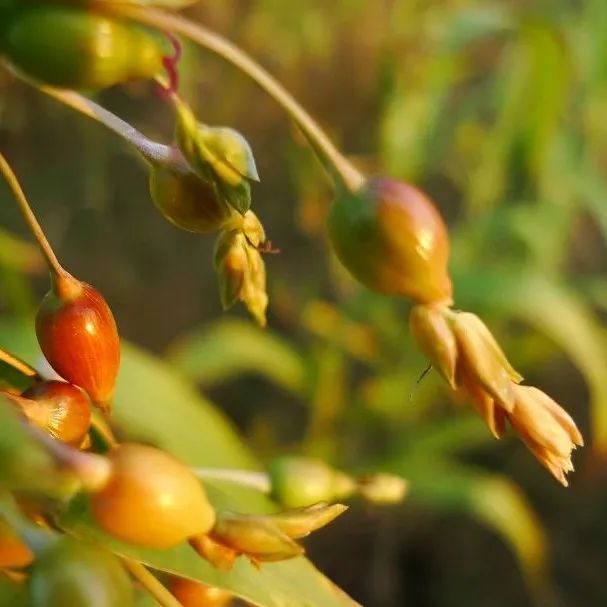
Pharmacological Effects
1. Enhances immune function.2. Analgesic and anti-inflammatory effects.3. Anti-thrombotic effects.4. Lowers blood sugar levels.5. Anti-tumor effects (inhibits cancer cell metastasis, induces cancer cell apoptosis, inhibits cancer cell division and proliferation, suppresses tumor angiogenesis, enhances radiosensitivity).6. Antiviral effects.
Ancient Clinical Applications
1. Treats lumbar pain due to spleen dampness: Lumbar pain is often thought to be a kidney issue, but it is actually due to spleen dampness. If the waist feels heavy, one should eliminate dampness from the waist, and the pain will resolve. Use 2 liang of Bai Zhu (Atractylodes) and 1.5 liang of Coix Seed, boil with 3 bowls of water until reduced to 1 bowl, drink in one go. This formula does not treat the kidney but effectively addresses the kidney issue.2. Treats hernia with heavy sensation and large scrotum: Use 4 liang of Coix Seed, stir-fried with Chen Pi (tangerine peel), boil with water to make a paste, take several doses to resolve.3. Ancient formula for hernia: Use 1 liang of Coix Seed, stir-fried until yellow, boil with water until soft, grind into a paste, take 2 qian mixed with no ash wine.4. Treats lung damage with hemoptysis: Use cooked pig lung, cut into pieces, dip in Coix Seed powder, and eat on an empty stomach. Coix Seed nourishes the lung, and pig lung guides it to the meridians.5. Treats malaria: Use 1 liang of Coix Seed (about 30g) and half a pot of wine, boil together, let it sit overnight, heat it the next morning, remove the Coix Seed, and drink the wine.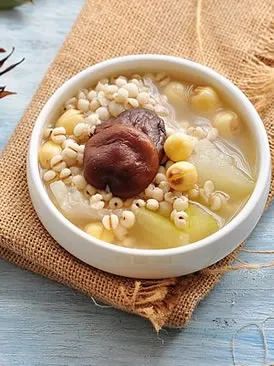

 Modern Clinical Application Examples
Modern Clinical Application Examples
 01
01
Treating joint pain
Male, 42 years old. After overexertion and exposure to cold, experienced shoulder joint soreness for 3 days, followed by migratory joint pain in the limbs, worsening in cold and rainy weather, with difficulty in movement. Tongue was pale with thin white coating, pulse was wiry and slippery. Diagnosed with wind-cold invading the meridians, causing Qi and blood obstruction and pain, treated with wind-dispelling, dampness-eliminating, and pain-relieving methods. Medication: 12g of Fang Feng (Siler), 12g of Chuan Xiong (Ligusticum), boiled in 1000ml of water for 10 minutes, strained, then added 60g of Coix Seed, simmered until soft, consumed morning and evening. Symptoms alleviated after 3 days, pain disappeared by the 8th day, and no recurrence after 1 month.02
Treating common warts
Male, 48 years old. A common wart the size of a soybean on the back of the left middle finger for over 20 years, with pain during finger movement in recent years, limiting activity. Ground Coix Seed into fine powder, applied with warm water to the affected area, secured with a dressing, applied 2-3 times daily, wart fell off after over 20 days, with no recurrence.03
Treating flat warts
Male patient, with flat warts the size of rice grains on the forehead and face, raised above the skin, painless and itchy. Ground Coix Seed into fine powder, mixed with warm water to form a paste, applied to the affected area before bed, washed off in the morning, once nightly, after 1 week flat warts significantly reduced, and almost all disappeared after 2 weeks.04
Treating heel pain
Male, 65 years old, experiencing heel pain for 4 years, severely limiting mobility and self-care. Minimal effect from both Western and Chinese medications and topical treatments. Prescription: 150g of Coix Seed, 50g of Huang Qi (Astragalus), 20g of Huai Niu Xi (Achyranthes), 1 pig trotter (500g). Method: Clean the pig trotter, wrap Huang Qi and Huai Niu Xi in cloth, place in a clay pot to stew until soft, consume Coix Seed, pig trotter, and broth. After several doses, pain reduced, and significant improvement after a period of continued use.
05
Treating multiple lipomas
Male, 56 years old. Suffering from lipomas for 2 years, with 11 lipomas of varying sizes on limbs, waist, and abdomen, the largest the size of a walnut, the smallest like a broad bean. No discomfort except for soreness when pressed. Prescription: 60g of raw Coix Seed, boiled with water, taken morning and evening. After 10 days, no change in lipomas. Increased dosage to 120g, after 20 days, small lipomas mostly disappeared, and larger ones significantly reduced. After 1 month of continued use, larger lipomas also mostly disappeared. No significant side effects observed during 2 months of treatment. 06
Treating seborrheic dermatitis
Male, 57 years old, clinical presentation: oily scalp, flaking, hair loss, itching. Patient also has diabetes, hyperlipidemia, and hypertension. Previously treated with antifungal medications and topical hydrocortisone ointment and ketoconazole wash, with minimal effect. Diagnosis indicated: spleen and stomach dysfunction, internal dampness accumulating in the skin. Used 100g of Coix Seed, cooked as porridge for breakfast. After about 3 months, scalp flaking and itching symptoms reduced, and hair loss decreased. After 1 year of persistence, scalp lesions significantly improved.07
Treating tumors
In treating mid to late-stage liver cancer patients undergoing hepatic arterial chemotherapy embolization, it was found that Coix Seed has effects similar to chemotherapy drugs with milder side effects, and can enhance the anti-cancer effects of chemotherapy drugs. It significantly alleviates liver area pain symptoms and reduces the general condition damage caused by tumor medications.
Additionally, related data shows that Coix Seed has also achieved good results in treating late-stage lung cancer: in cases treated with Coix Seed without additional chemotherapy regimens, after one course, it was found that the primary lesion had not been surgically removed, no new lesions in the lungs, and the primary lesion shrank by more than 25%. The above clinical examples are for reference only.END
Written by丨Traditional Chinese Medicine Pharmacy Bai Xue
Images from丨Internet
Edited by丨Jin Xiaofang and Yu Miao
Proofread by丨Yu Miao
Recommended Reading
● Do you know the Chinese herbs for treating gout? (Part 1)
● Do you know the Chinese herbs for treating gout? (Part 2)
● 【积医科普】The Wonderful Uses of Ginger
